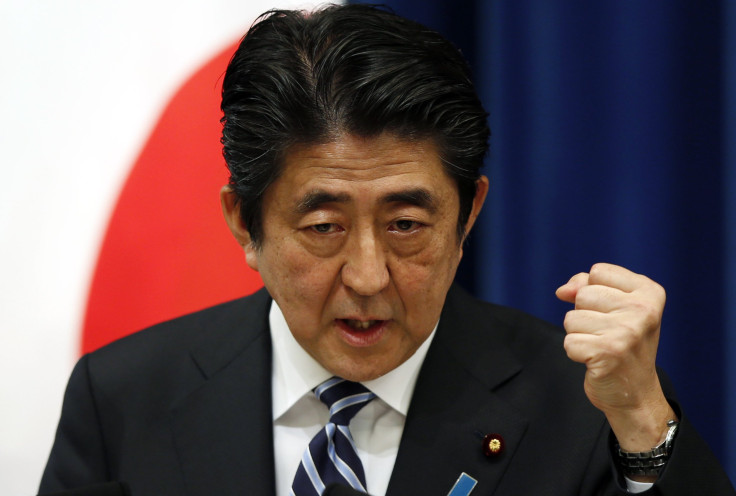Japan's Revisionist History: Crown Prince Naruhito Calls For Correct Understanding Of War History

Japan’s typically apolitical Imperial House appears to be taking a stronger stance over the direction nationalist politicians are taking in downplaying the country’s past war crimes, an effort predominantly led by Prime Minister Shinzo Abe. Experts believe that the recent comments by Japan’s royalty are a muted expression of concern with some of the policies and actions of the government.
Speaking at a press conference a day before his 55th birthday, Japan’s Crown Prince Naruhito, who is next in line to assume the emperor's throne, commented on the importance of understanding the nation’s history and how it paved the path for national peace.
“I myself have not experienced the war, but it is important to look back to the past humbly and to correctly pass down tragic experiences and the history behind Japan to the generations who have no direct knowledge of the war, at a time memories of the war are about to fade,” he said during the press conference. “I hope this year will be an opportunity to take the preciousness of peace to heart and renew our determination to pursue peace.”
According to Craig Martin, a graduate of Osaka University, law professor at Washburn University and expert on Japan, not only are the comments from Naruhito surprising considering the apolitical nature of the Imperial House, but combined with the new year address by his father, Emperor Akihito, the message holds even more weight.
“The emperor in his new year’s message spoke about Japan’s history and the onset of World War II where he referenced the Mukden Incident as the commencement of the war, which is as at odds with revisionist perspectives. That by itself raised eyebrows,” Martin said in an interview.
“I think it is most important for us to take this opportunity to study and learn from the history of this war, starting with the Manchurian Incident of 1931, as we consider the future direction of our country,” the 81-year-old emperor said in the statement released via the Imperial Household Agency.
The Mukden Incident, also known as the Manchurian Incident, was a staged railway explosion by Japanese military used as a pretext for the invasion of China's Manchuria region.
“Now, we have the crown prince with further comments about history,” Martin said. Taken together, he said, the comments contradict what has been so fiercely touted by Abe and his administration.
“It leads to an inference that the Imperial House may be uncomfortable with the direction the government is going with revisionist efforts,” Martin said. “Perhaps the Imperial House is expressing concern and maybe exercising influence or signaling to the government.”
Abe and his rightest constituents, known for downplaying Japan’s historic crimes and violence during his first term as prime minister in 2007, when he campaigned for patriotic education and frequently questioned outsider interpretations of history, have forged on during this term with a similar agenda. Last month, Abe criticized American textbook publisher McGraw-Hill Education for what he said was an inaccurate portrayal of Japan’s actions during World War II.
© Copyright IBTimes 2025. All rights reserved.





















